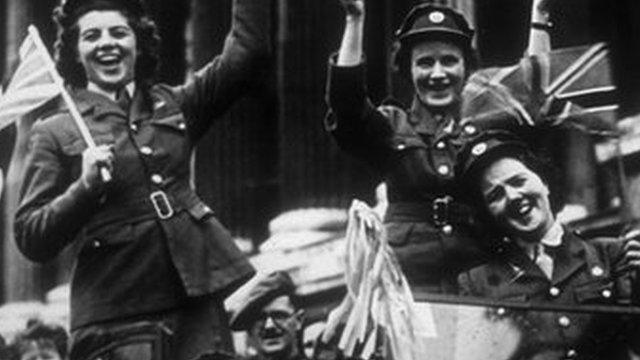VE Day: Veterans join Queen at VE Day service and parade
- Published
The BBC's Nicholas Witchell reports: ''The commemoration was led... by a monarch who remembers VE Day''
The Queen has joined around 1,000 veterans and their families in a service of thanksgiving at Westminster Abbey to mark the 70th anniversary of VE Day.
The Archbishop of Canterbury said the veterans had ensured "victory over the greatest darkness of the 20th Century".
Crowds gathered to watch a military parade passing through Westminster towards Buckingham Palace.
It was followed by a fly-past of World War Two aircraft.
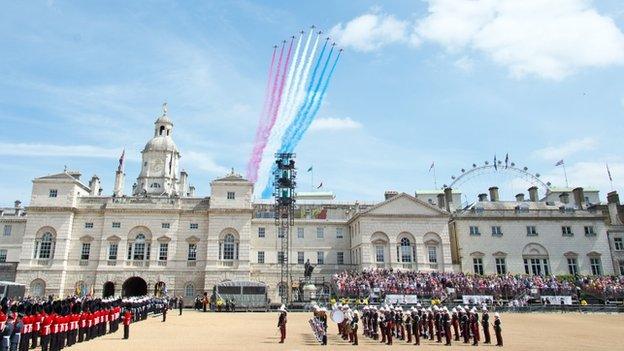
The Red Arrows and World War Two aircraft flew over Horse Guards Parade
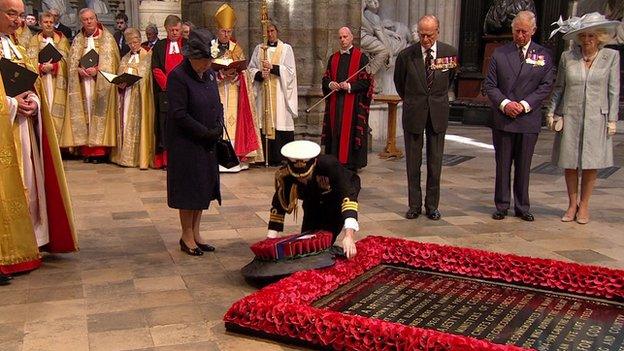
The Queen watched as a wreath was laid at the Grave of the Unknown Warrior
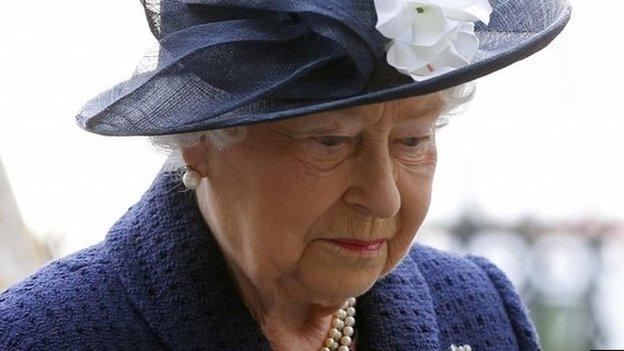
The Queen attended the service with the Duke of Edinburgh
The events were held to commemorate the day, 70 years ago, when Nazi Germany surrendered to the Allies, bringing peace to Europe after nearly six years of war.
The Duke of Edinburgh, the Prince of Wales and Prime Minister David Cameron were at the service, which was led by the Dean of Westminster.
Representatives of the Allied nations and Commonwealth countries that fought alongside Britain also attended.
Young cadets read prayers which had been said in Westminster Abbey during the hourly services on VE Day in 1945.
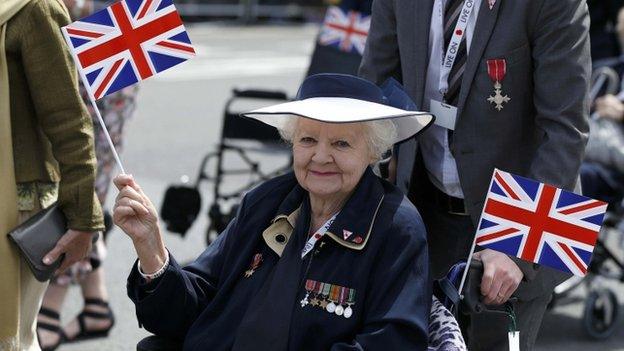
Crowds gathered to watch the military parade passing through Westminster towards Buckingham Palace
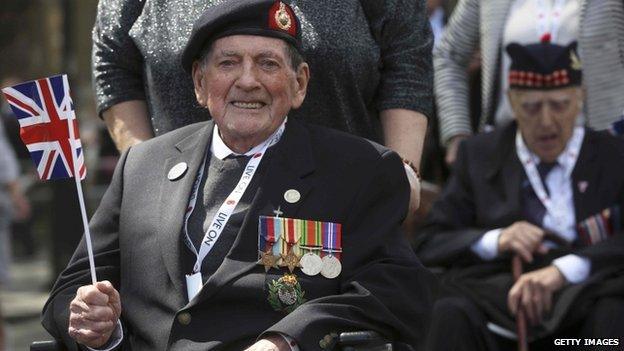
Actor Simon Russell Beale also read from the VE Day speech of King George VI, the Queen's father, who was monarch at the time.
There was a fly-past over central London by the Red Arrows and WW2 aircraft, including Spitfire and Hurricane fighters.
The Lancaster bomber was also due to take part in the fly-past but an engine fire onboard the plane on Thursday has meant it has been grounded.
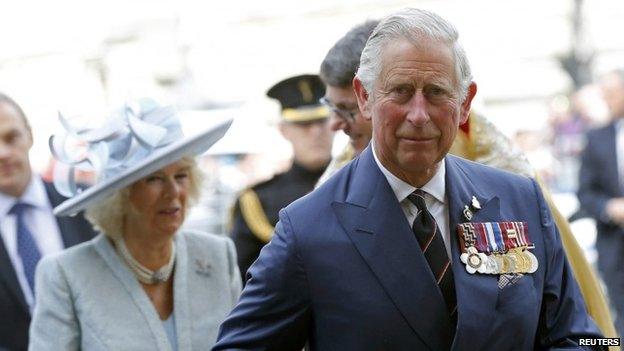
The Prince of Wales and the Duchess of Cornwall were also at the service
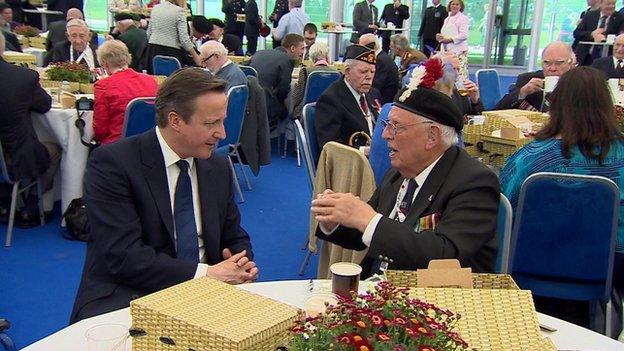
Prime Minister David Cameron joined veterans at a lunch in St James's Park
The events marked the culmination of the UK's VE Day commemorations.
Weekend of celebration
On Saturday evening, thousands of spectators, including WW2 veterans, gathered at an aircraft hangar-style stage in London's Horse Guards Parade to see musical and dance acts influenced by the era and readings by actors.
The concert at Horse Guards Parade in London had ''a flavour of the 40s''
Performers included Katherine Jenkins, Pixie Lott and the rock band Status Quo.
Actress Jane Horrocks was overcome with emotion as she read the final letter written by Lieutenant George F Morrison of the 7th Battalion of the Royal Highlanders, which was sent on to his mother following his death.
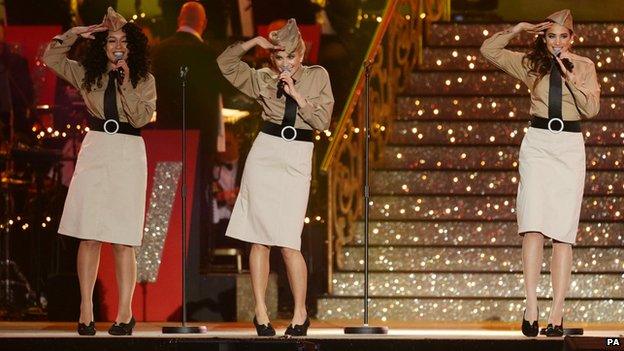
The concert was held in London's Horse Guards Parade, on the second day of VE Day celebrations
Jane Horrocks was overcome with emotion as she read a dead soldier's final letter to his mother
Church and cathedral bells rang out at 11:00 BST on Saturday - in a symbolic gesture to signify the end to the years of conflict, which saw church bells largely silenced - although they were sounded in November 1942 to mark the success at El Alamein.
Celebrations were also held in the Channel Islands - the only part of the British Isles to be occupied by the Nazis in WW2.

At Westminster Abbey
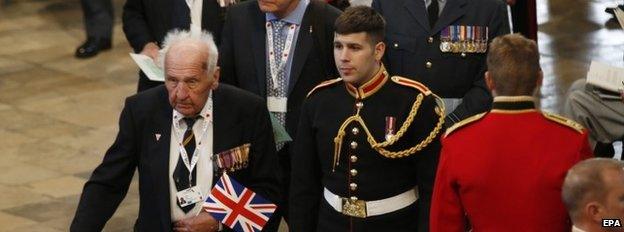
By BBC royal correspondent Daniela Relph
This has been a day for those who remember, for those who 70 years ago celebrated VE Day and mourned those who wouldn't be coming home.
The theme of the service was thanksgiving for reconciliation and unity as well as prayers for peace.
The pews of the Abbey were filled with decorated veterans - some in uniform, many a little unsteady on their feet but all wearing their medals with pride.
Veterans and young military cadets delivered many of the readings and prayers.
It was striking to hear the voices of those who had seen and heard so much during World War Two followed by the crisp, optimism of those who hope they will never have to experience anything like it.
After the Queen left, the veterans lingered in the Abbey. A national service of thanksgiving this may have been but for many of those here it was an intensely personal service, a moment to remember the events of 70 years.

What was VE Day?
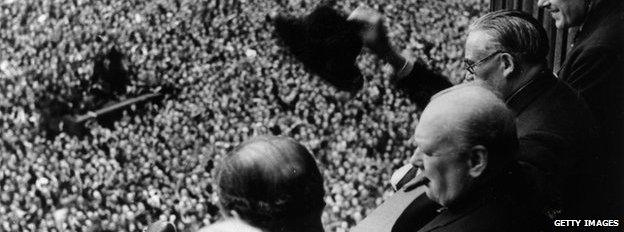
Then prime minister Winston Churchill addressed thousands of people from the Treasury balcony 70 years ago
VE Day held on 8 May, 1945, celebrated the end of war in Europe
The British government had been planning the celebration from late 1944. The code word 'MOUSETRAP' alerted ministers when VE Day was imminent
Bunting was taken off rations, pubs stayed open late and searchlights were used to light public monuments
Churchill broadcast to the nation at 3pm from Whitehall. Listeners later heard their first weather forecast since war had begun

- Published10 May 2015
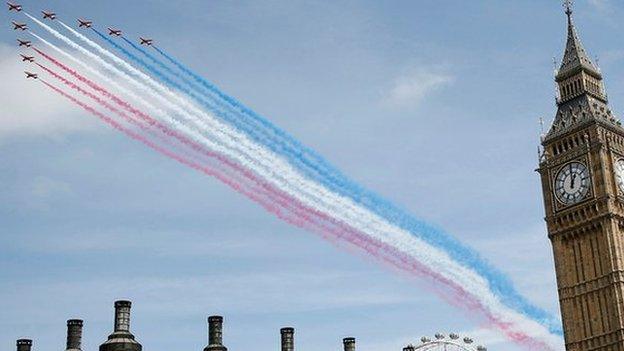
- Published10 May 2015
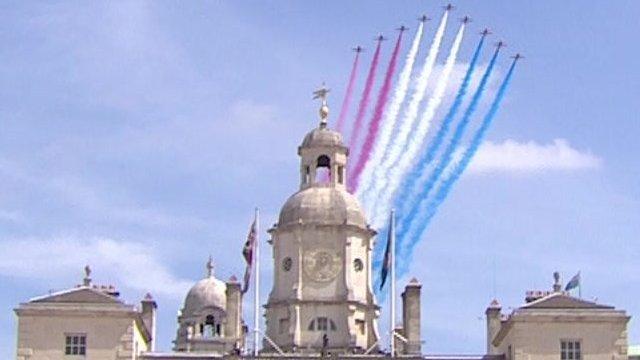
- Published9 May 2015
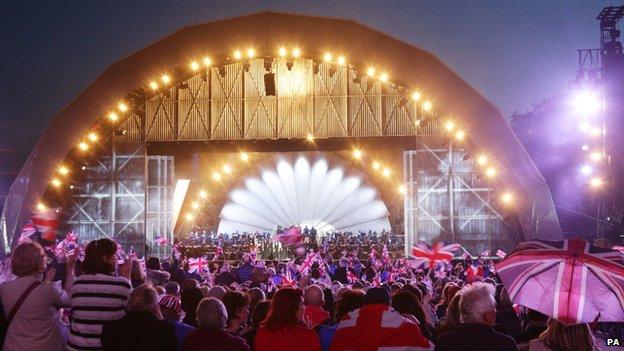
- Published9 May 2015
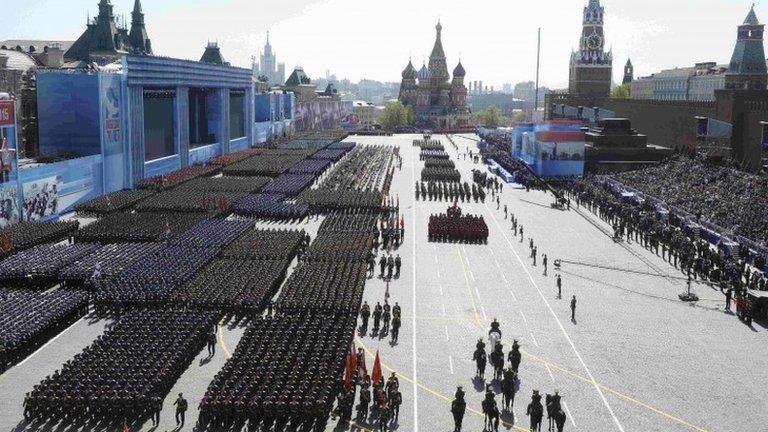
- Published8 May 2015
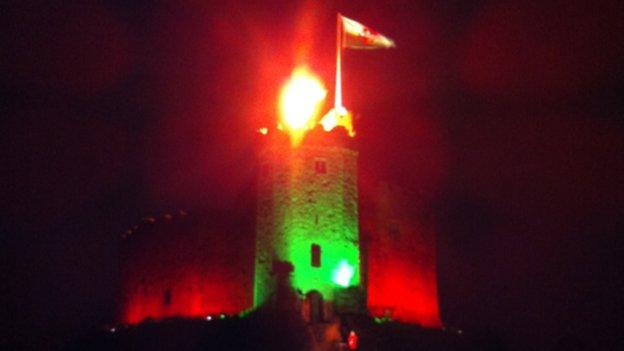
- Published8 May 2015
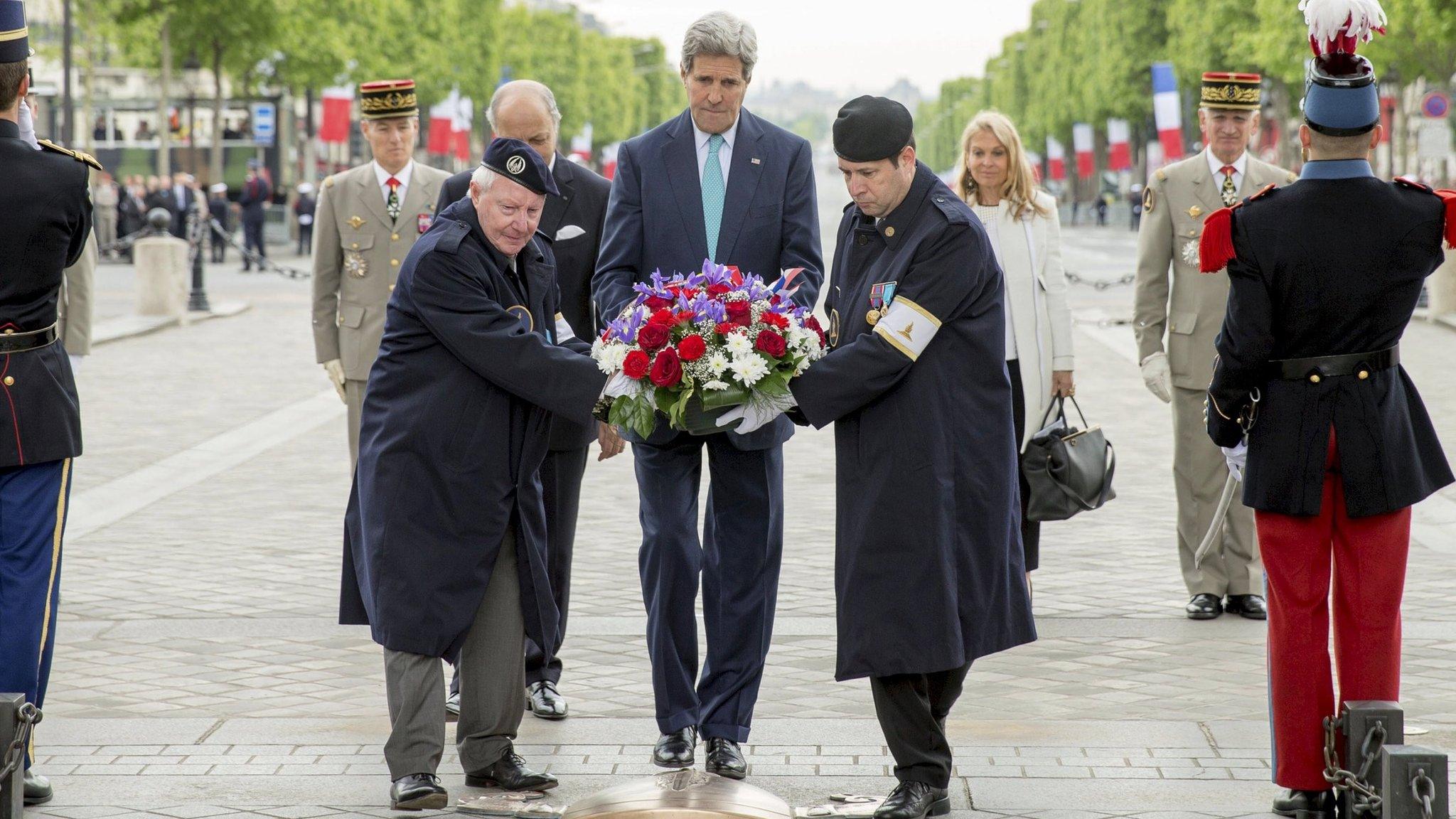
- Published8 May 2015
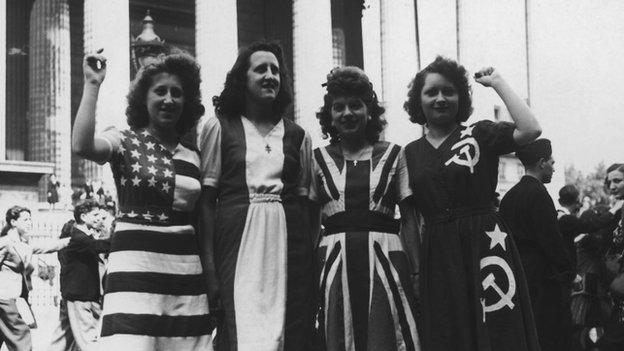
- Published8 May 2015
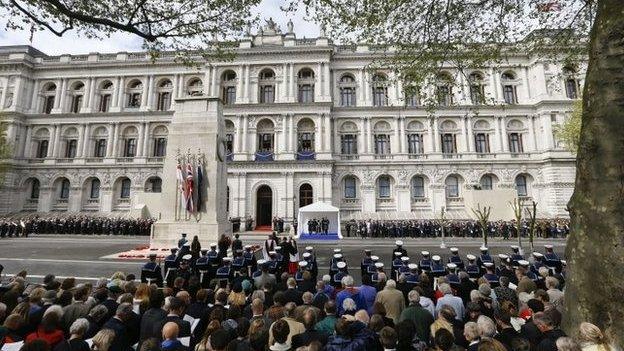
- Published8 May 2015
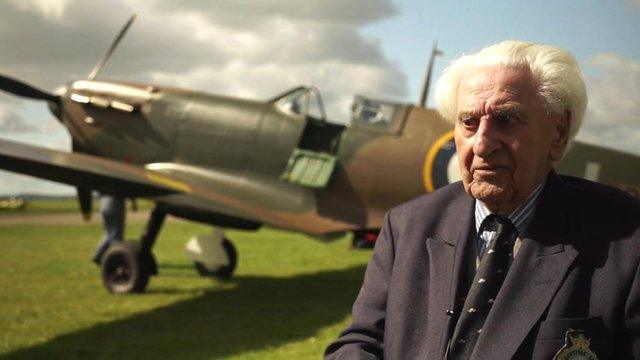
- Published7 May 2015
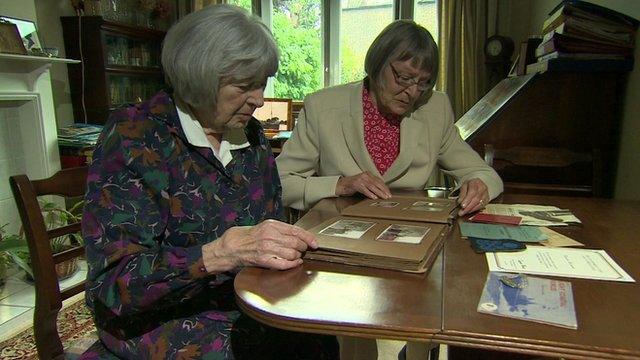
- Published6 May 2015
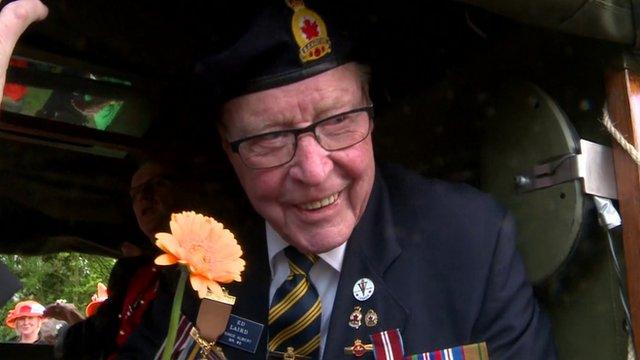
- Published6 May 2015
